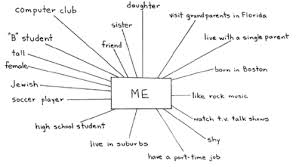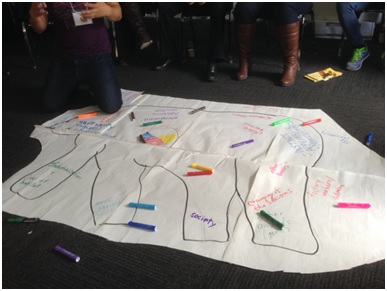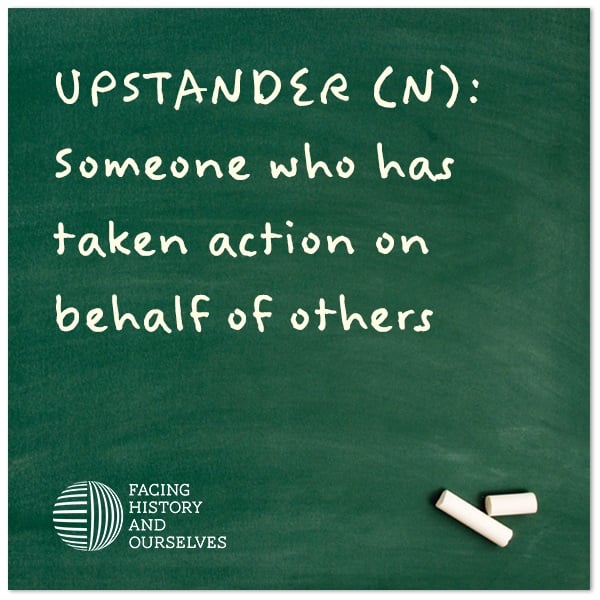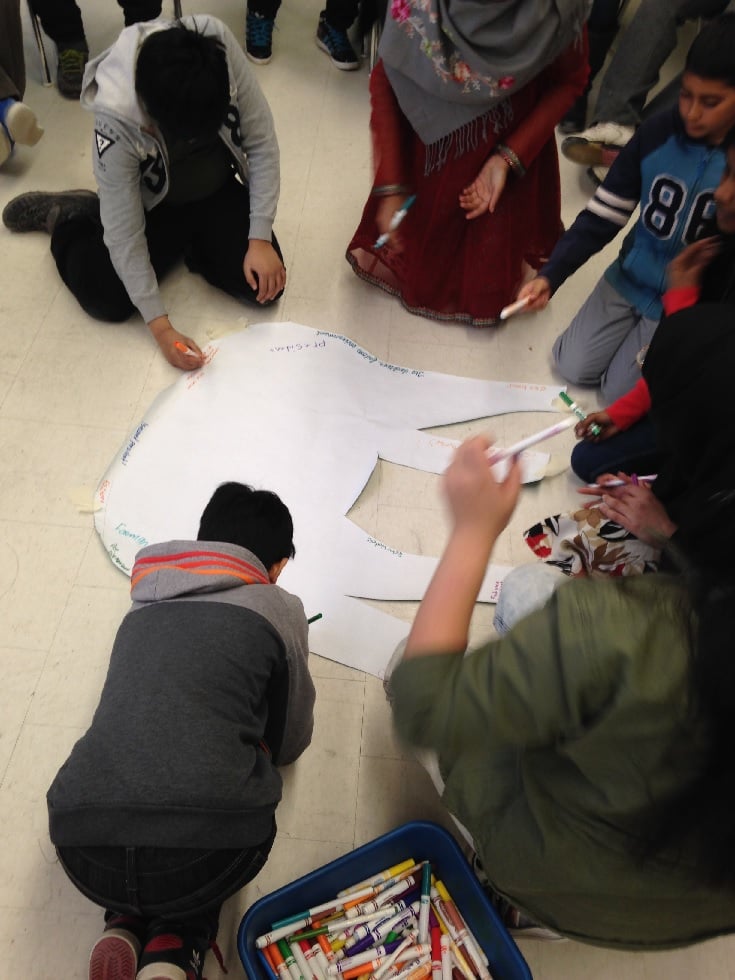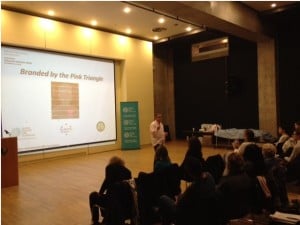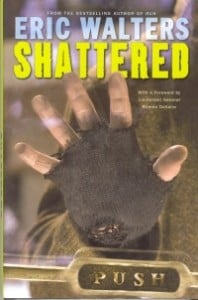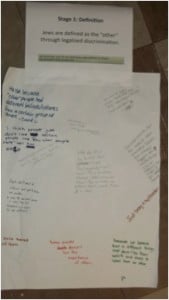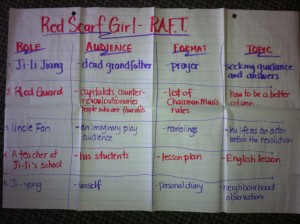Last week I had the honour of participating in the Facing History and Ourselves: Holocaust and Human Behaviour summer seminar at the Ontario Institute for Studies in Education.
6 Ways I Am Bringing my Transformative Learning to My New Facing History Classroom
Posted by Jonathan Temporal on August 25, 2014
Topics: Professional Development, Facing History Resources, Identity, Middle School, Strategies
Earlier this year I had the honour of presenting a workshop at the Elementary Teachers of Toronto LGBTQI Teacher Conference at Ryerson University. I described the workshop as:
An interactive, participatory drama and movement workshop using the text “The Bear That Wasn’t” to explore our struggles with identity, how our identities are shaped by others and societal expectations and our battle to find our true selves.
Topics: Professional Development, Identity, Middle School, Strategies, Lesson Ideas
This April, students at the Thomas Street Middle School (TSMS) in Peel took a stand against bullying and homophobia and what they did will amaze you. Watch this video then read on to learn more:
Topics: Choosing to Participate, current events, Middle School, Social Justice
Voice, Reward, and Expectations: Reflections on a Middle School Classroom
Posted by Ariel Vente on March 20, 2014
As elementary schools have just passed the mid-point of the school year, I’ve taken some time to reflect on the first half of the year. Schools are part of a larger educational system. However, our classrooms are also a microcosm of society; a community of members with jobs to do, and rules, norms and expectations, which members are expected to follow. But, as we are too well aware, within the larger society, we encounter issues of unfairness and injustice. I’ve been questioning my practice and asking myself: Does my classroom parallel the oppressions of our society? Am I reinforcing and reproducing what is happening in the larger society in my classroom?
Topics: Professional Development, Identity, Urban Education, Regent Park, Middle School, Culturally Responsive and Relevant Pedagogy, Social Justice, Deficit Thinking, reflection
Topics: History, current events, Middle School, Social Justice, reflection
Topics: Choosing to Participate, Facing History Resources, Identity, History, Memorial, current events, Middle School, Lesson Ideas, In the news, Holocaust and Human Behaviour, English Classroom, Social Justice, LGBTQ, Personal history
From Summer Seminar to School: What I Took Back to My Classroom
Posted by Facing History and Ourselves on October 17, 2013
As a middle school teacher I was often asked why I was giving up a week of my summer to attend the Facing History and Ourselves’ Holocaust and Human Behaviour seminar. “You don’t teach that time period,” being the most frequent comment. They were right. But there was something about Facing History and how they approached teaching that piqued my interest and so I went.
Topics: Back-To-School, History, Middle School, We and They, Summer Seminar, Literature, reflection, English
We know that it's not easy to teach about the Holocaust and genocide. For many the topic is very difficult and many students cannot wrap their heads around the scope and magnitude of how these mass murders could occur, particularly about the idea of how an entire nation could allow horrific events like this to happen. Creating that safe, caring classroom is essential in being able to have these difficult lessons. In a middle school classroom, these are essential conversations, as students at this age care and have a strong sense of fairness and justice.
Topics: Facing History Resources, History, Regent Park, Middle School, We and They, Strategies, Lesson Ideas, Holocaust and Human Behaviour, Social Justice
As educators, we want the answers as to why our students aren't learning. Do they have special education needs such as a learning disability? Are they lacking motivation? Did they get enough sleep the night before? Did they have breakfast? But how many of us ever ask: do my students feel safe? Overwhelming brain based research indicates the importance of students feeling safe in schools in order for them to be able to learn.
Topics: Urban Education, Middle School
One of the challenges many teachers experience is trying to meet the needs of their diverse student population in their respective classes. Differentiated instructions strategies (D.I.) enables teachers to better meet these varied needs and in turn enables students to be successful because their needs are met at their level of readiness, interests and learning styles.
Topics: History, Middle School, Strategies, Lesson Ideas, English Classroom, Literature

